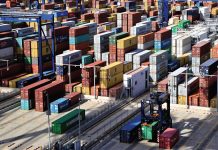ISLAMABAD: The Federation of Pakistan Chambers of Commerce and Industry (FPCCI) has urged the government to remove the hurdles in full implementation of the Web-Based One Customs (WEBOC) system at all the border crossing points with Afghanistan for swift clearance of trade goods.
“The WEBOC system should immediately replace the manual customs clearance system currently in vogue at a majority of the crossing points,” FPCCI Chairman Irfan Iqbal Sheikh told WealthPK.
He said disruptive Internet, power loadshedding and untrained staff marred the full operation of the system where it was put in place.
FPCCI is an umbrella of 240 trade bodies, including 59 men and 23 women chambers representing business, industry and services sectors.
WEBOC is an indigenously developed, web-based computerised clearance system, providing end-to-end automated customs clearance of import and export goods.
Iqbal Sheikh explained that manual good clearance system is slow and takes time for officials to clear the trucks loaded with goods.
“This is an era of technology,” he said, “and the full implementation of WEBOC would result in enhancing taxes and government revenues.”
He also urged the government to improve the infrastructure at Chaman, Torkham and other crossing points for the smooth flow of cross-border trade.
“Losses in perishable items can be minimised by making arrangements for swift goods’ clearance with the help of online system and better facilitation at crossing points,” he said.
The FPCCI chief also demanded setting up the border-crossing markets, launching flights from Peshawar to Kabul, and allowing even small pick-up trucks for goods transport to Afghanistan.
Iqbal Sheikh estimated that Afghanistan is a more than $5 billion market for Pakistan, but that potential has never been exploited. “We need to focus on resolution of the real issues to enhance our exports to Afghanistan,” he stressed.
The FPCCI chief said Afghanistan can be a gateway for Pakistan to reach the Central Asian markets. “Afghanistan geographically connects Pakistan with Central Asian Republics via land route and can help enhance our trade with those markets,” he said.
Recently, Pakistan has allowed export settlement of 14 items to Afghanistan in local currency as currently no proper banking system functions in the neighbouring country.
Export of poultry and products, meat, cement, pharmaceutical, textiles, fruits, vegetables, salt, rice and surgical instruments to the crisis-hit neighbouring country will be done in Pakistani rupee.
The FPCCI has requested the government to include more items on the list allowing trade with Afghanistan in Pakistani rupee. “This is a good decision by the government. However, it should cover more items as well to facilitate all exporters,” the FPCCI chief told WealthPK.
Iqbal Sheikh also suggested allowing the exports of certain chemicals to Afghanistan.
“These chemicals are used in manufacturing plastic-made footwear.”
Earlier, Pakistan had also granted a temporary waiver of Electronic Import Form (EIF) for Afghanistan in order to facilitate trade activities. The waiver was granted for 45 days initially to assist Afghanistan in addressing its economic crisis.
As corresponding banks did not issue EIFs to execute transactions for imports, this led to long queues of cargo vehicles being stuck at Torkham and Chaman borders.
Meanwhile, Mohammad Saleh Faruqui, Secretary of the Ministry of Commerce, said recently that the government projected exports to Afghanistan at $1.2 billion during the current fiscal year.
However, the export target was revised at about $600 million.
Due to the current volatile situation in Afghanistan, Pakistan’s exports to the country fell by 30% to $161 million during the October-December period of fiscal 2021-22 from $229 million during the same period of last fiscal year.
INP






